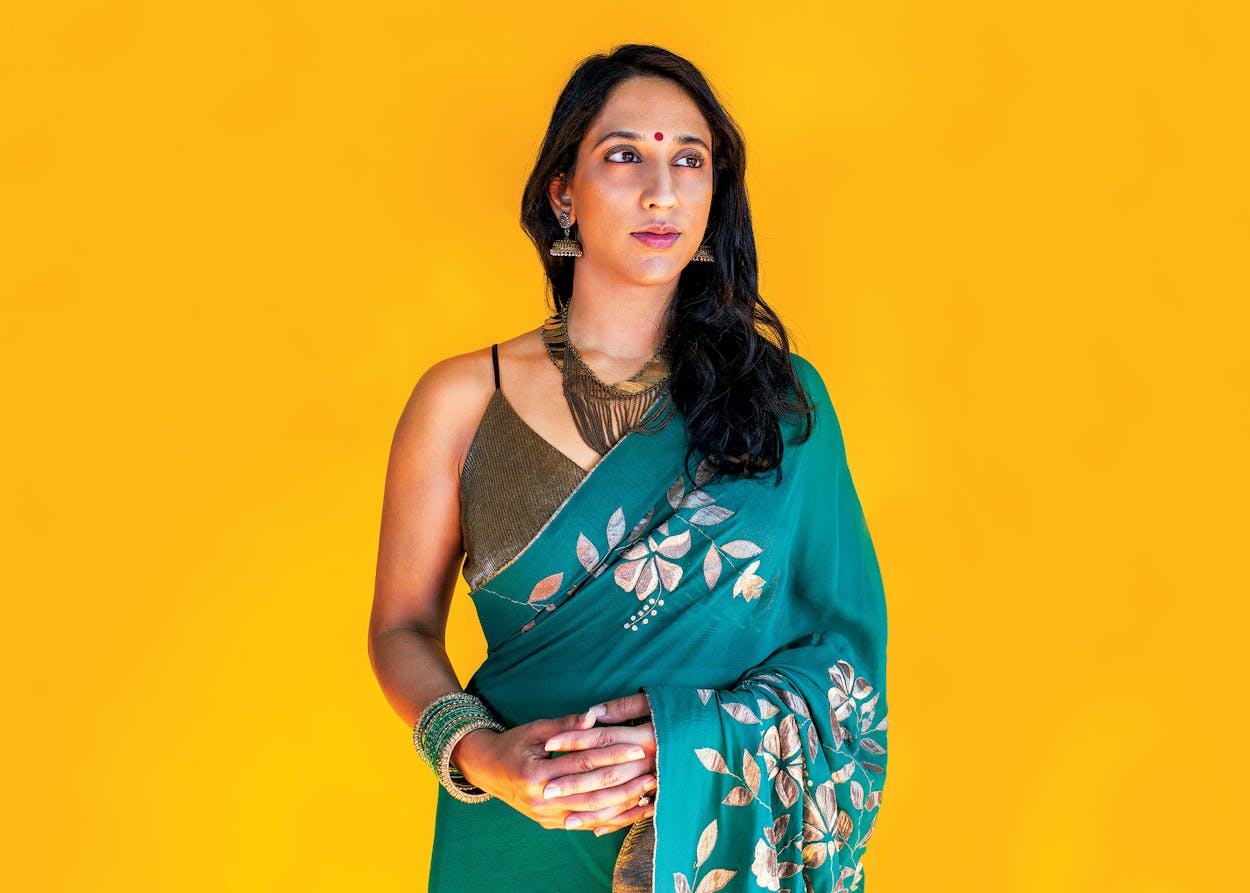Many South Asian American women, even those whose families have been in Texas for generations, have a special attachment to the sari. The draped garment is an enduring symbol of grace that traces back to the Indus Valley civilization, over four millennia ago. Yet Dallas attorney Parul Das is out to improve it.
The Houston native has always loved the tradition of donning a sari for Indian weddings and holidays, but it’s a complicated process. Women who wear saris only for special occasions often need the help of a mother, professional draper, or friend to help wrangle the fabric (up to nine yards) around the waist, tuck it into a petticoat, gather it into even pleats below the navel and secure it, then wrap it around the waist and over the shoulder. Draping can take different regional forms, but this Nivi style is most common.
Texas has the fourth-largest Indian American population in the U.S., according to the 2010 census, with the most inhabitants—more than 100,000—in the Dallas–Fort Worth area. Sejal Bhakta, a Dallas-based event planner specializing in South Asian weddings, says it’s not unusual for an Indian American family to spend six figures on a three-day wedding event.
So everyone wants to put their best foot forward, and in a culture-centric way. Das began noticing that her friends were forgoing saris and their intricate draping in favor of lenghas, full skirts paired with crop tops. Four years ago, while taking sewing lessons to make a maternity sari, she stumbled on a way to create an easy-to-wear sari.
In September, Das—who still practices law—launched the Two-Step Sari, a prestitched garment whose moniker refers to the easy process of pulling on the skirt and arranging the loose end. The name is also a nod to Das’s love of country music. Prices start at $245.
She’s not the first entrepreneur to tackle the draping problem, but Das, whose patents are pending, eliminated the need for pinning the fine fabric to the petticoat. Her pleats are built into the petticoat, and a rubber grip inside the waistband keeps it all from shifting around.
At a recent South Asian bridal expo in Irving, many attendees who approached the Two-Step Sari booth couldn’t wait to show their moms. Said Das, “The sari is the iconic garment of our culture, and I don’t want to witness its demise.”
Jean Scheidnes is a writer based in Dallas.
- More About:
- Style & Design
- Dallas







